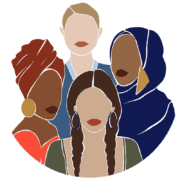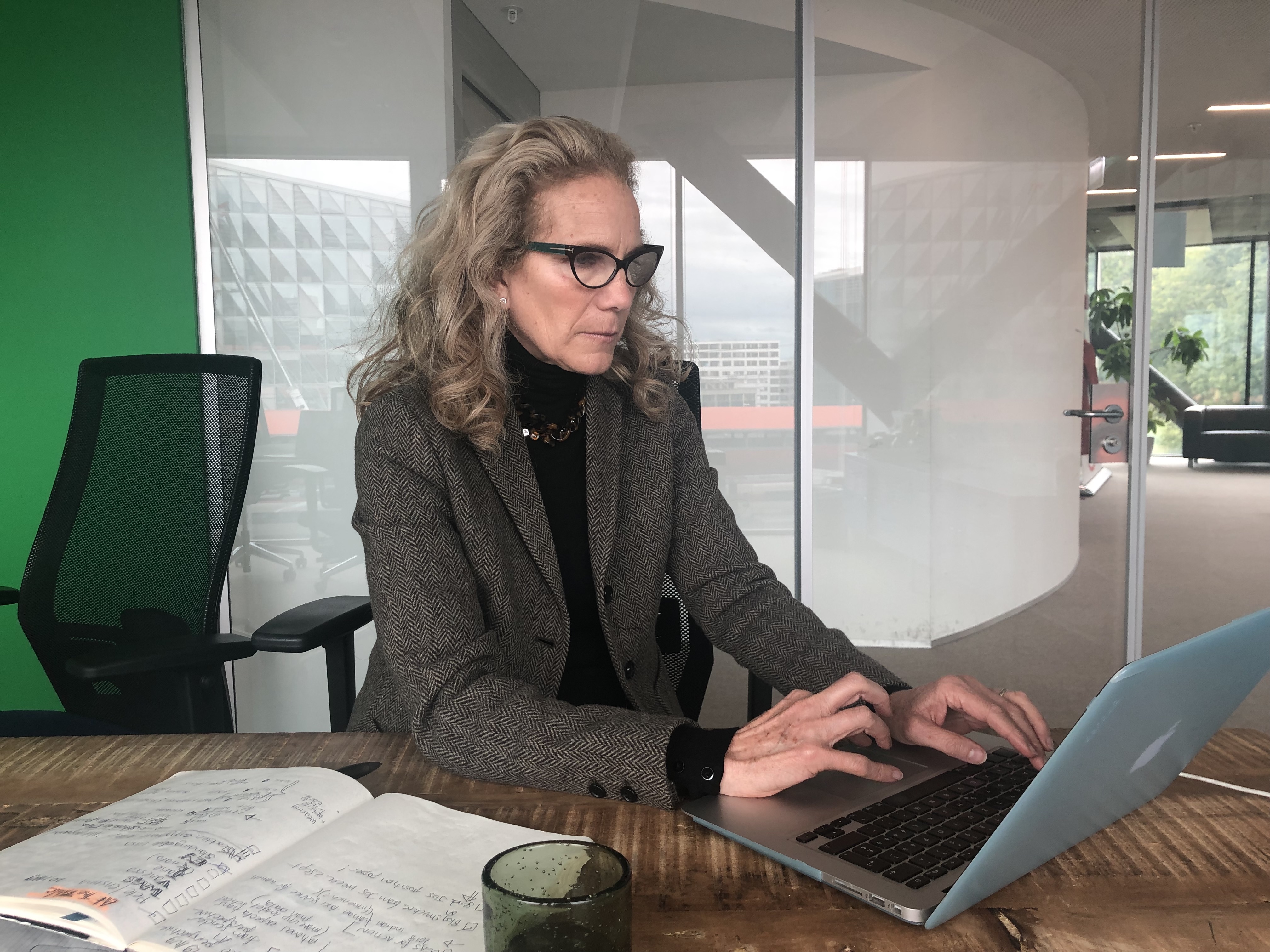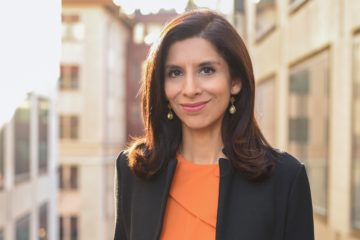Each month we have the honor of interviewing Women Who Inspire Us. This month we talked to Caitlin Kraft Buchman who is the founder and CEO of Women at the Table and the co-founder of the A+ Alliance for Inclusive Algorithms. In this conversation, we discuss the importance of challenging the status quo and not being afraid to take action and making our voices heard.
Tell us a little bit about yourself, your background and your current position?
I’m Caitlin Kraft Buckman and I am the founder and CEO of Women at the Table and the co-founder and leader of the A+ Alliance for Inclusive Algorithms, which brings together our work on technology and feminist systems change.
At Women at the Table we focus on democratic governance, the economy, sustainability, and technology. Since 2020, we have found that focusing our work on these systems through the prism of technology and innovation is very effective.
How did you start Women at the Table?
I’ve been everything from a Hollywood agent to working for TED to being an IP consultant helping Hollywood and Silicon Valley work together on a common vocabulary. Hollywood was very much a boys club and I have always been a feminist.
The older I got, the more I realized that the accident (as well as privileges) of my birth, that of being a female born in the West, was creating my destiny – for good or bad.
The origin story of Women at the Table is that I was hired by a foundation in Switzerland to be the body person for a delegation of women activists from the Democratic Republic of Congo for a he Summit on the Prevention of Sexual Violence in Conflict.
I was there to aid these absolutely extraordinary & powerful women to tell their story in a way that could help create change. At some point in the discussions, I asked if there was any way to negotiate with the rebel groups that have, over the past thirty years and more, plagued raped and killed the people of the region. And Julienne Lusenge, leader of the DRC colleagues said: “You have to be a man with a gun to get a seat at the table”.
When I got back the foundation asked me what I would do with an NGO and we started off thinking we would put more women at the table, instead of more men with guns. Research had shown that unless you were on the stage of the World Economic Forum, you never get shortlisted to become a Minister in your country. You needed this international platform in order to be able to succeed at home.
So we thought, okay, we need to put more women on the stage. Pretty easy with 500 meetings a year in Geneva right?
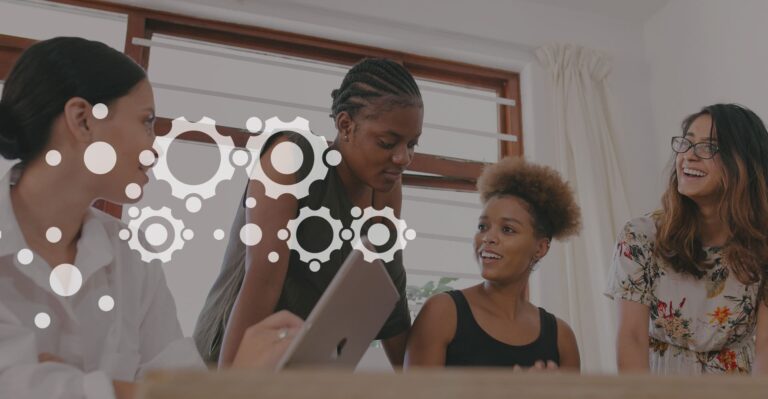
We opened a little door and people started going through that door and populated the space.
I am guessing it wasn’t that easy?
Right around this time, there was a panel about the Future of Women & Technology in the 21st Century and on stage were 14 men, all Ministers. It was ridiculous.
This led us to create the International Gender Champions (then called the Geneva Gender Champions) in 2015. There I was, representing Women At The Table, with the US Ambassador to the UN Organisations in Geneva and the Director General of the UN Office at Geneva. The first thing we called for was to no longer have all male panels, which quickly became no single sex panels.
Then we asked the heads of the International Organizations to make two individual annual commitments in their personal capacity. One of the first persons who committed was António Guterres, the UN High Commissioner for Refugees at the time (ed. note: now United Nations Secretary General). Now we have hubs in Geneva, Vienna, Nairobi, The Hague and in Paris and work with the Heads of almost all the International Organizations, many Ambassadors and members of Civil Society to bring this change together.
Since you started Women at the Table, do you feel that things are changing for the better?
I see some things happening that are positive and that could never have happened five or ten years ago.
With the Gender Champions we changed the way people were represented on panels, but we thought we needed to do more. We started a Trade Impact group at a time when the word ‘woman’ had never been mentioned ever in any official WTO (World Trade Organization) or GATT (General Agreement on Tariffs and Trade) document because trade was thought to be legally neutral.
This idea of neutrality, of things being gender blind or racially blind has now been disproved, but people still talk about neutrality as if it is a genuine things, as they do about technology.
We drafted the Declaration on Trade and Women’s Economic Empowerment which was signed by 123 countries at the time. It’s now officially become the Buenos Aires Declaration on rade and Women’s Economic Empowerment at the WTO and now there is even an official working group at the WTO. This is something that people said “This will never happen, don’t even put it on the wishlist”.
We opened a little door and people started going through that door and populated the space. And this is what we do a lot at Women at the Table.
We did the same thing with standards. We started to understand that everything from the size of beakers in a chemistry lab to a fighter pilot’s seat in a cockpit was still based on the “average man’s body”. So we started working on a Gender Responsive Standards Initiative. This has been signed by every international standards body and the regional bodies. All signed up to reevaluate their standards for a gender responsive evaluation. And that’s a big structural change.
This in turn led us to look at algorithms.
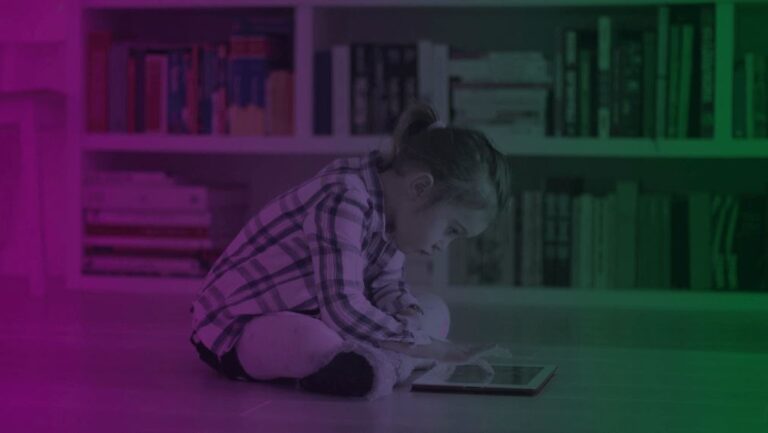
It’s my dream for women and girls all over the world to be able to express how something could work better, to be able to articulate their solutions.
Can you tell us more about the A+ alliance for inclusive algorithms?
We do a lot of things with the Alliance from advocacy to education but right now what I am most excited about is our applied research. Currently, we have a call out for people to reimagine algorithmic decision-making models.
Every system is run by rules and regulations, whether we are talking about the pension system, the university allocation system, or credit lines, etc. And it is important to ask ourselves: what was that original system designed to do? Who was it meant to include or exclude? What was the logic behind it?
Maybe it was a logic that made sense in the 50s, or the 60s. Now we have the ability with data science to deal with hundreds of thousands, millions, billions of data points. Is there a way for us to reimagine these systems so that they provide equity, better quality of life? There isn’t a lot of discussion about that.
I think this is a pivotal moment in human history. It’s a moment where we can recreate things that are really quite extraordinary. Or we can just go down a path like Chat GPT, simply scraping information from the Internet and taking it as uninterrogated truth. Large Language Models and the deep learning neural networks have not been programmed to forget anything. What you can only do, potentially, is try to overload them with more good things (rebalance the data) so the bad things are diminished, but this is difficult and costly.
So instead we are working on how to actually get to these problems at the beginning of the design process.
One way is through educating people in tech. Another way is through social scientists and people who have ideas, who can work with the women and men in tech on how to build better more social and inclusive systems. We don’t need to all become technologists to make the technology better and more impactful.
It’s my dream for women and girls all over the world to be able to express how something could work better, to be able to articulate their solutions, to connect with others, and for everyone to understand and incorporate the insights and the lived experience of people who are for example, smallholder farmers in Africa, or young women in European cities who feel at risk at night.
We need to be able to build the kinds of apps and technology that will allow people to thrive.
What advice would you give someone who wants to have a positive impact and contribute to gender equality?
The first thing I’d like to say is that you’re never too young. You shouldn’t wait for a degree, etc. All you need are your ideas, your passion and your energy. Find allies, and identify the systems that surround you.
Even an eight year old girl can ask “How come at my school during recess the boys get the pitch to play, and the girls never get a chance to play? How can we have the girls play?”
You can look at any system that you are a part of and say this works or this is not working. How can I help optimize it for fairness, inclusive, better quality of life?
Which aspects of your work are you the proudest of?
I’m happy that we chose to be in places where nobody else has gone, although it can be lonely and difficult at times. Algorithms will probably be our last big thing because it is not going to be easy to make the profound changes that will need to happen.
This technology brings us enormous potential but it also brings incredible dangers unless we decide that we’re in control – no matter who we are, whether we’re a marketer, or a coder, a data scientist, a policy maker – we have a real responsibility when it comes to the social impact of our decisions.
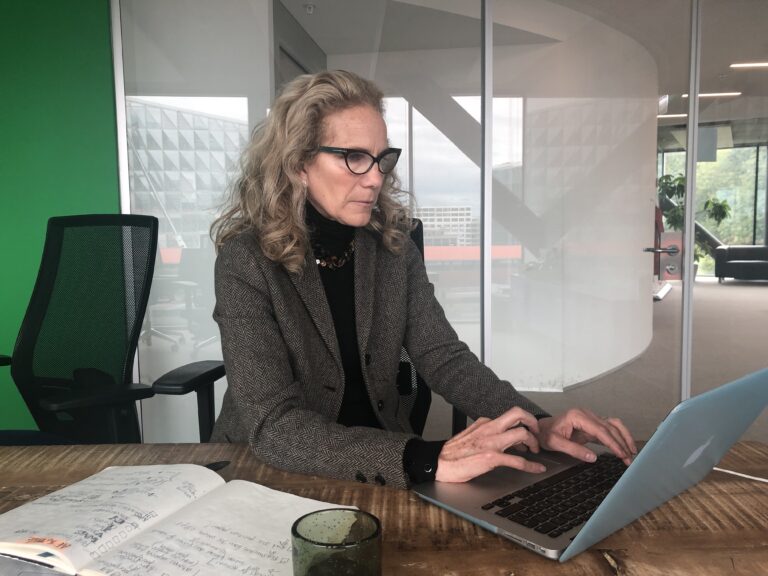
We’re in a very unique space to get feminists to understand that technology is a primordial battle that they have to engage with.
What would you say has been the toughest challenge in your career?
We’re in a very unique space to get feminists to understand that technology is a primordial battle that they have to engage with. They are not yet in great numbers. On our side it is also about getting technologists to see that this notion of inclusion by design, inclusion for better quality of life, is paramount.
What would you advise your younger self?
I should have known that I wasn’t too young. I should have known not to wait and let other people lead. I should have had the confidence to reach out to other like-minded people and say, “What can we do together?”
I think that young people need to start taking the conversation over and start taking the power.
At Girls In Tech, we strongly believe in the power of role models. Who is your role model?
I would say my Mother because she was a real feminist, free thinker, trailblazer, and so was my grandmother who was a union organizer. They both really believed in helping people. They showed me to be fearless and that’s been an immense gift.
There are so many other women I admire. I admire Esther Duflo, who won the Nobel Prize for Economics because she has brought forward new ways of thinking. I wind up admiring anybody that looks at the status quo and has a new perspective on it, whether they’re an artist, whether they’re a technologist a writer or political leader.
Are there any readings, podcasts or other resources that you would recommend to our community?
We have the Feminist AI on Pub Pub, to which we’re about to add a lot of new material. The first collection is already up there, which is an excellent primer.
Invisible Women by Caroline Criado-Perez is fabulous. And for algorithms Weapons of Math Destruction by Cathy O’Neill or Automating Inequality by Virginia Eubanks are fundamental.
Data Feminism by Catherine D’Ignazio and Lauren Klein is amazing and mind blowing. Also simple to read… and finally Design Justice by Sasha Constanza-Chock is great.
I also recently read the Ministry for the Future by Kim Stanley Robinson which is a great piece of speculative fiction. It makes you think about the way that we live, the way we relate to one another, and what is possible.
Do you have any last piece of advice that you would like to share with our community?
We have to focus on technology that we need, and the technology that will allow us to thrive and to improve our quality of life. This begins with discussions, really talking to the people who are affected and including them as a fundamental part of the design process. I would like to see lived experience considered as an equal to technical expertise going forward.
Thank you Caitlin for your time and for sharing your story with us. Thank you for being a woman who inspires us! 💛
Author: Anne-Sophie Scharff

